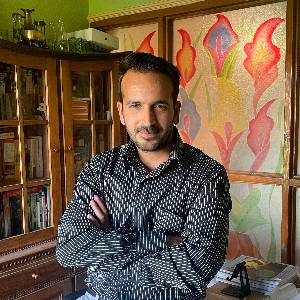In 1648, probably the most significant international treaty of the modern world – the Treaty of Westphalia, was signed in the German province of the same name. This was to put an end to the internecine Thirty Years’ War amongst the Spanish, Dutch and German empires. But this also laid the groundwork for the international order of the modern world.
The Westphalian treaty was symbolic of a world just coming out of the medieval international system with its civilizational empires, brazen expansionism and bloody conflict. After the Westphalian treaty, we now had a small coterie of European nations that was soon to become a model of our international system for centuries to come. The newly consolidated nations were Sweden, France, the Netherlands, the Swiss confederation, Poland, Bavaria, Transylvania, Brandenburg and the United Provinces.
The Westphalian Peace set clear boundaries for the power spheres between the church and the state. Their uncontrolled intermixing had only complicated the Thirty Years’ War and the leaders were keen to avoid this in the future.
The nations were compartmentalized based on the presumption that states with a common cultural, linguistic and historical heritage were likely to be more stable. The populations would be better able to rally around the flag as the cohesive sense of belongingness was already present. Thus came into existence the modern state-system that continues to dominate our international system today.
As the Westphalian state system evolved and perfected itself, a clear advantage over the past political structures was surfacing. The state structures drew on the common will of the masses, due essentially to the already existing harmony and commonalities. These structures now had the benefit of stability and also the time and opportunity to organize themselves, something that couldn’t be said of the structures prevalent hitherto. The Social Contract seemed to be fully invested into these power structures, seating them atop the European societies and giving them complete control of the resources. The fact that these structures were so well-organized gave them a monopoly of coercion and the ability to channel the resources for the welfare of their citizens, precluding any competition from opposing groups in this regard. The state structures derived their power from being singularly organized to utilize the economic resources and endowments and channel these for development and welfare of their populations. This became the sole basis of their authority and stability for centuries to come.
Today, however, we see the same organizing ability amongst Non-State Actors that are able to surround the resources with the same or even better efficiency as a state structure. Two of the most significant non-state actors are the Multinational Corporations (the MNC’s) and Transnational Outfits (like ISIS and Al-Qaeda).
MNC’s have been growing in stature and clout across the world, especially since the fall of Communism in the early 90’s. These have the ability and the necessity to organize and operate efficiently, being driven by free-market competition and the profit motive. In the last few decades, we have seen these MNCs take greater control of earth’s resources in the course of their business. They have grown so powerful that they have begun to be seen as the senior partners in the conventional politician-businessman nexus. In today’s knowledge-driven economies, companies like Google and Facebook have tremendous power owing to their ability to control well-structured and useful information that passes daily through their data-centers.
On the other hand, Transnational Outfits like the ISIS and Al-Qaeda that espouse a clear-cut ideology or a world-view, have also gained the ability to organize themselves better and capture control of resources in geographies they operate in. For instance, as the ISIS expanded through Iraq and Syria a few years back, it realized the importance of monopolizing the oil resources of the region, captured large fields and controlled their supply. Similarly, the recent developments in Afghanistan and the debacle of the US-backed government and military there, is symbolic of the waning power of state structures in the face of a well-organized onslaught by a Non-State Actor.
Non-State Actors could reshape our world in ways we never imagined before. The very anticipation of these changing realities has its impact in terms of the leadership talent that States and Non-States will attract. In the coming years, it would be very interesting to ask the CEOs of top multinationals whether they would like to switch their jobs with the Premiers of a nation. After all, it is not just power but also the anticipation of power that shapes the decisions of leaders. While it would be too early to suggest that the rise of Non-State Actors sounds a death knell for the Westphalian international system that we have known and even taken for granted so far, there is very little doubt about the direction in which the locus of power is shifting.
The views and opinions expressed in this article are those of the author.


